It’s Fall, ya’ll! And that means many festivities are to come. The Fall season brings the harvest celebrations, pumpkin patches, corn mazes, Thanksgiving, the beginning of the Christmas season, and my absolute FAVE: the Starbucks Fall and Holiday drinks menus!
Along with all these joyful seasonal activities comes the beginning of the seasons of upper respiratory illnesses like RSV, Flu, and COVID-19, amongst others.

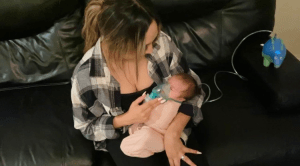
After recently navigating COVID-19 as a family while pregnant, RSV with all my babies (including my newborn), plus multiple illnesses throughout the months, I have learned that keeping children healthy is important as a whole, especially during these colder months when infections are prominent.
As mamas, we cannot put our kids in a bubble, but we can practice healthy habits that can avoid sickness and keep us healthy every season. Some of these are:
1. Boosting the Immune System
Okay, what is it about littles picking everything up from the floor? What’s worse is when they put stuff in their mouth (or is it just my baby girl?). Children are prone to these tendencies due to their exploratory nature. This is where a healthy immune system is important. A healthy immune system has a better chance of defeating germs like bacteria, parasites, and viruses that cause illnesses while getting rid of toxins that harm our children’s bodies.
Healthy eating
What we feed our littles is important. It’s especially crucial that we raise them to be healthy eaters from the beginning for proper growth and development. The CDC provides guidelines for nutrition for a healthy diet: a variety of fruits and vegetables, whole grains, fat-free/low-fat dairy products, and a variety of protein foods amongst others. Plenty of water and low-sugar liquids can aid in keeping them nourished, too. You can use this website to find healthy eating plans.
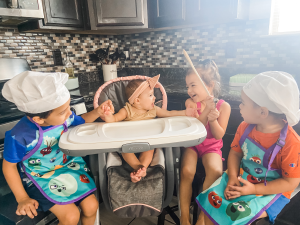
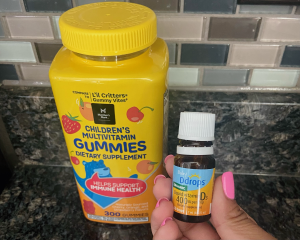
Adding Supplements
Yes, children also take vitamins! In liquid form, powder form, or–my kid’s favorite–gummies! Supplements that boost the immune system include probiotics, vitamin D, elderberry, zinc, and vitamin C. What I currently use for my toddlers (5 years, 3 years, and 2 years old) is this multivitamin gummy, and for my baby girl (1 year old), I add this Vitamin D to my nipple on the first breastfeeding session of the day.
Quality Sleep
Sleep is vital to both parents and children for boosting the immune system. During sleep, the immune system releases proteins that fight infection. When we don’t get enough sleep, the production of these proteins is suppressed, leaving our bodies less able to fight off illnesses. According to the American Academy of Sleep Medicine, children 3 to 5 years of age should sleep 10-13 hours per 24 hours (including naps) and children 6 to 12 years of age should sleep 9-12 hours per 24 hours on a regular basis to promote optimal health. Ensuring quality sleep promotes a healthy immune system, especially in children.
2. Teaching Daily Habits and Routines
Avoiding the spread of germs is the first step to preventing illnesses. It can take some time, but implementing routines can keep children from getting sick. Some of these are:
Getting Home Routine
Our kids already know the mantra “What do we do when we get home? Take off our shoes and wash our hands!” We set up an area at the entrance of our house where we all leave our shoes and then head over to the bathroom to wash our hands. We all change to clean clothes and put the dirty clothes in the laundry hamper after that. If we bring anything from the outside (groceries, clothes, backpacks), we disinfect it with Clorox Wipes.
Proper Handwashing
According to the CDC, handwashing can prevent illness to ourselves and to others. Removing germs through handwashing can help prevent illnesses and keep children healthy. Basic handwashing routines we teach our children are to wash their hands before eating, touching their face, or any cut or scrape. It’s also important to teach children to wash their hands after going to the bathroom, playing outside, and in our case, as soon as we get home.
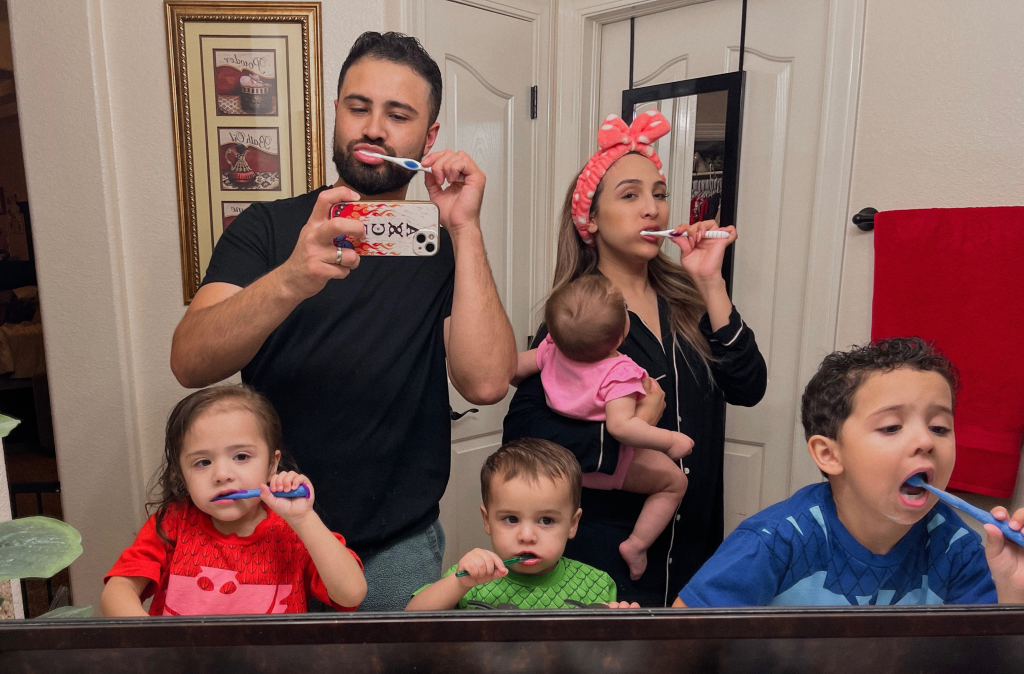 Daily Hygiene
Daily Hygiene
Washing hands is important, but so is daily hygiene. Teaching our littles to stay clean as a whole can help prevent them from getting sick. Some basic personal hygiene habits we teach our littles are: having regular baths or showers, washing their hands, brushing their teeth, and covering their mouth when they cough or sneeze.

3. Staying Up To Date with Pediatric Appointments
Well-Child Visits
Well-child visits are important for a child’s development. They include a physical examination to measure growth, developmental assessments, screening procedures, preventative guidance, and an update on immunizations. Check out this well-visit schedule by the American Academy of Pediatrics to ensure you are up to date.
» » » » » » RELATED READ: Choosing a Pediatrician for Baby: 6 Things to Consider « « « « « « «
Immunizations
One of the best ways to prevent illnesses and the spread of diseases is to stay up to date on your child’s vaccine schedule. Vaccines can reduce the risks of illness by working with the body’s natural defenses to build protection. You can use this link to view the CDC’s current vaccine schedule.
(This applies only to families who decide to vaccinate such as mine. We all have different approaches and dynamics, and that is perfectly fine.)
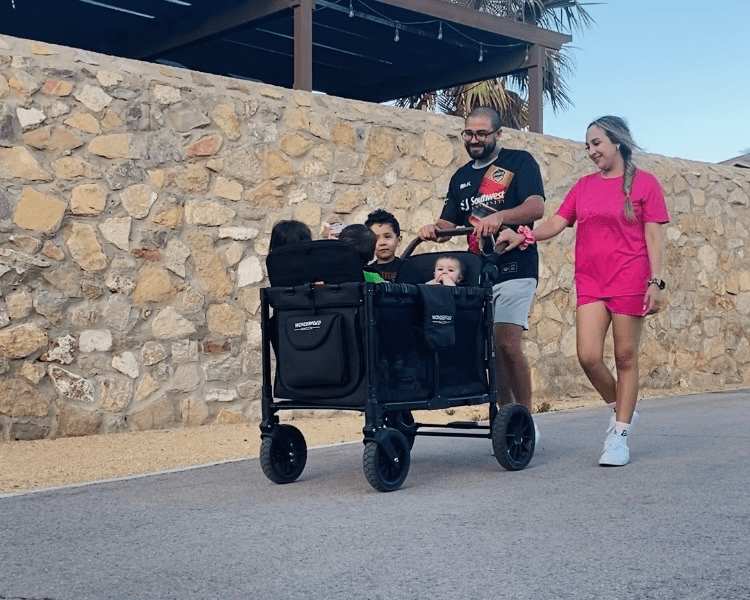
4. Avoiding the Things That Weaken the Immune System
When it comes to keeping children healthy, it’s important to position ourselves both in offense and defense. This means that we not only attack but also prevent. Preventing the things that can lead to sickness is crucial during this season.
Some things that can weaken the immune system are foods that are high in salts and sugars (such as processed foods), lack of sleep, lack of outdoor exposure, and an increase in stress and anxiety. Steering away from all of this is important to avoid illnesses and stay healthy overall. It is also important to avoid large crowds, especially if we know there could be a potential for illness. If you must attend, you can always teach children (2 and older) to wear a mask to minimize the risks.

5. Being the Role Model
Yes, we must walk the talk, mama! Our children are watching us, and they learn from what we do. This means that everything listed here is also applicable to us as their mamas. Make sure you also attend regular checkups, stay active, eat healthy, minimize stress, and prioritize self-care.
Bonus: Self-care is definitely vital for a mama’s immune system. Check out these fellow El Paso Mom contributors’ articles about self-care:
5 Ways To Practice Self-Care with Cozy Fall Activities
Reconnecting with Myself: Body, Mind, Social, and Spiritual
10 Tips to Improve Your Energy and Your Mood
Mama Needs A Facial : 5 Easy Steps
Sometimes, sickness can still happen, and it is okay, mama.
Illnesses are a part of life. What is important is that you keep trying to instill these habits and keep up the structure to minimize risks as they grow up. And if your family still ends up getting sick, it’s a-ok! Never blame yourself or feel guilty (ahem–like I used to). As I mentioned above, my large family and I have combated many illnesses, and while it is hard to see our children sick, I have learned that even after fighting an illness, the immune system becomes better equipped to fight off the same virus again.
Ultimately, mama, you decide which habits to implement and when depending on your family dynamics. What matters at the end of the day is that our babies (and their mamas) are healthy, even when they do end up getting sick.
Look at you educating yourself on such an important subject! This itself should let you know that you are already doing AMAZING. Pat yourself on the back, mama. You got this! I believe in you!
***Of course, we encourage you to talk with your child’s pediatrician about things like vaccination, vitamins, and a healthy diet. Your pediatrician can give you the best information that is specific to your child.
The opinions expressed in this post are those of the author. They do not necessarily reflect the official policy or position of El Paso Mom, its executive team, other contributors to the site, its sponsors or partners, or any organizations the aforementioned might be affiliated with.









